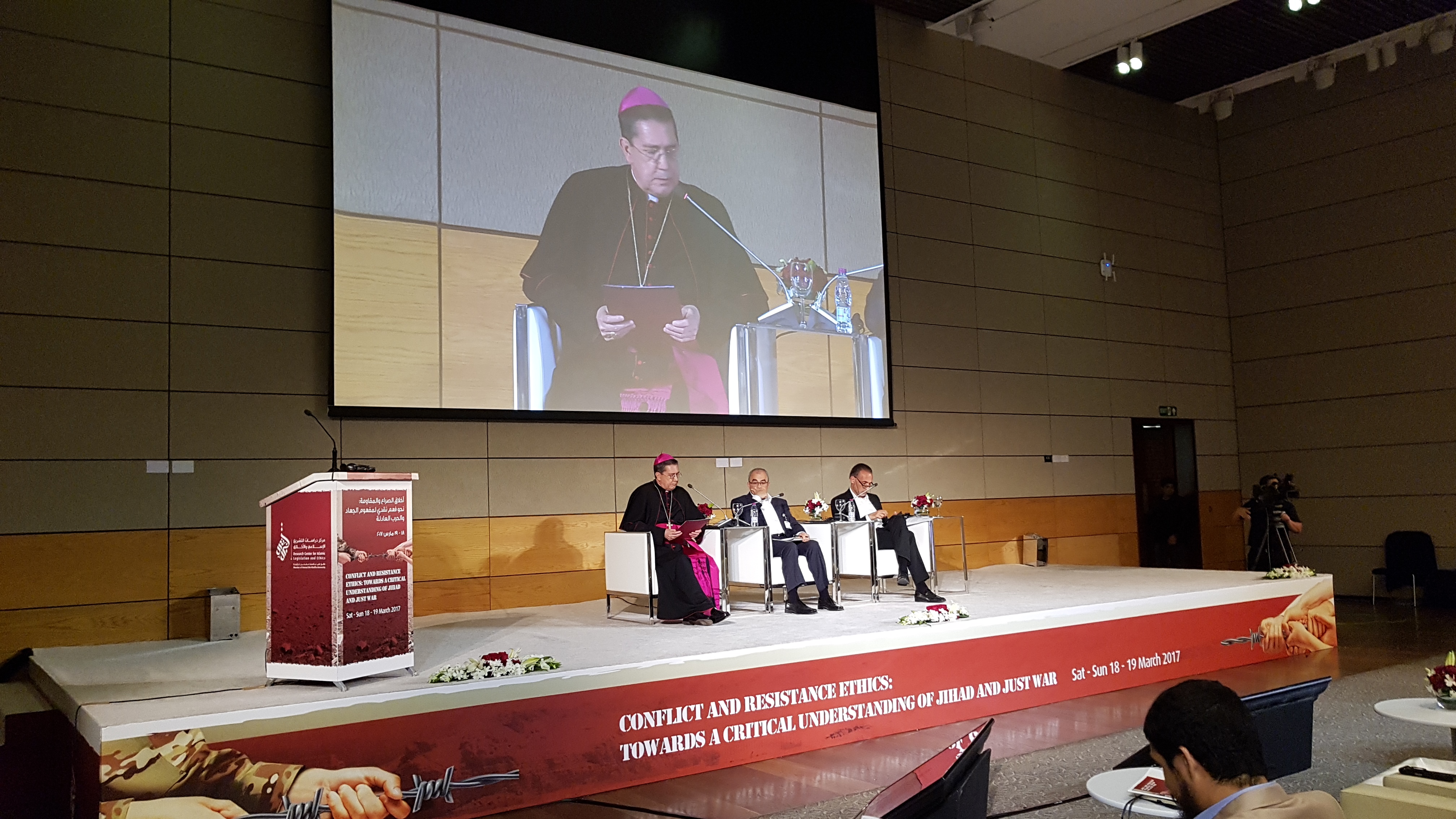
Many countries in the world, particularly in the Middle East, are nowadays suffering from violent conflicts. These conflicts hold various economic, social, cultural and political dimensions, however religion is often assumed in various circles - be it political, media or the general public - as a latent influencing factor. Islamic ‘Jihad’ is very often mentioned, but rarely understood or properly interpreted. Just as the use of terms such as ‘Just War’, ‘Terrorism’, ‘Violence’ ‘Peace’ and ‘Ethics’ in the same context has proven to be problematic.
In this context, Hamad Bin Khalifa University’s College of Islamic Studies (CIS) brought this debate onto its 5th Annual International Conference’s platform. Organized by CIS’s Center for Islamic Legislation and Ethics (CILE), the conference, which was titled ‘Conflict and Resistance Ethics: Towards a Critical Understanding of Jihad and Just Wars’, provided attendees with the opportunity to discuss the various aspects of these conflicts in relation to the concept of Jihad.
Speakers included Dr. Tariq Ramadan, Executive Director of CILE; Mr. Chauki Lazhar, Deputy Director of CILE; Dr. Mohamed El-Moctar Al Shinqiti, Associate Professor of Political Ethics of CILE and Dr. Fethi Ahmed, Research Coordinator at CILE. Guest speakers included HE Bishop Miguel Angel Ayuso Guixot, Secretary of the Pontifical Council for Inter-religious Dialogue; Dr. Colm Mckeogh, Lecturer of political science at the University of Waikato in New Zealand and Dr. Jerome Drevon, Research fellow of the Swiss National Science Foundation (SNSF) at the Blavatnik School of Government.
The discussion addressed the topic through three subthemes, ‘Rethinking Jihad and Just War’, ‘Peaceful and Violent Means: Towards a Just Peace’, and ‘The Consequences of Violence and Unjust Peace’.
Highlighting the aim of the conference, Dr. Mohamed El-Moctar Al Shinqiti added: “The primary goal was to discuss the current problems afflicting the Islamic world, and how we can face those problems from both an Islamic and humanitarian lens.”
He continued: “We need to have a global discussion on outlining certain moral and ethical codes in regards to violence and the proper response to combat it, and we all need to adhere to it, and that includes large, powerful countries as well. We cannot allow a country to follow a different set of moral guidance that we have set for individuals.”
CILE leads the reform and renewal of contemporary Islamic legal and ethical thought and behavior by contributing a sustainable ethical framework for addressing contemporary global challenges.





